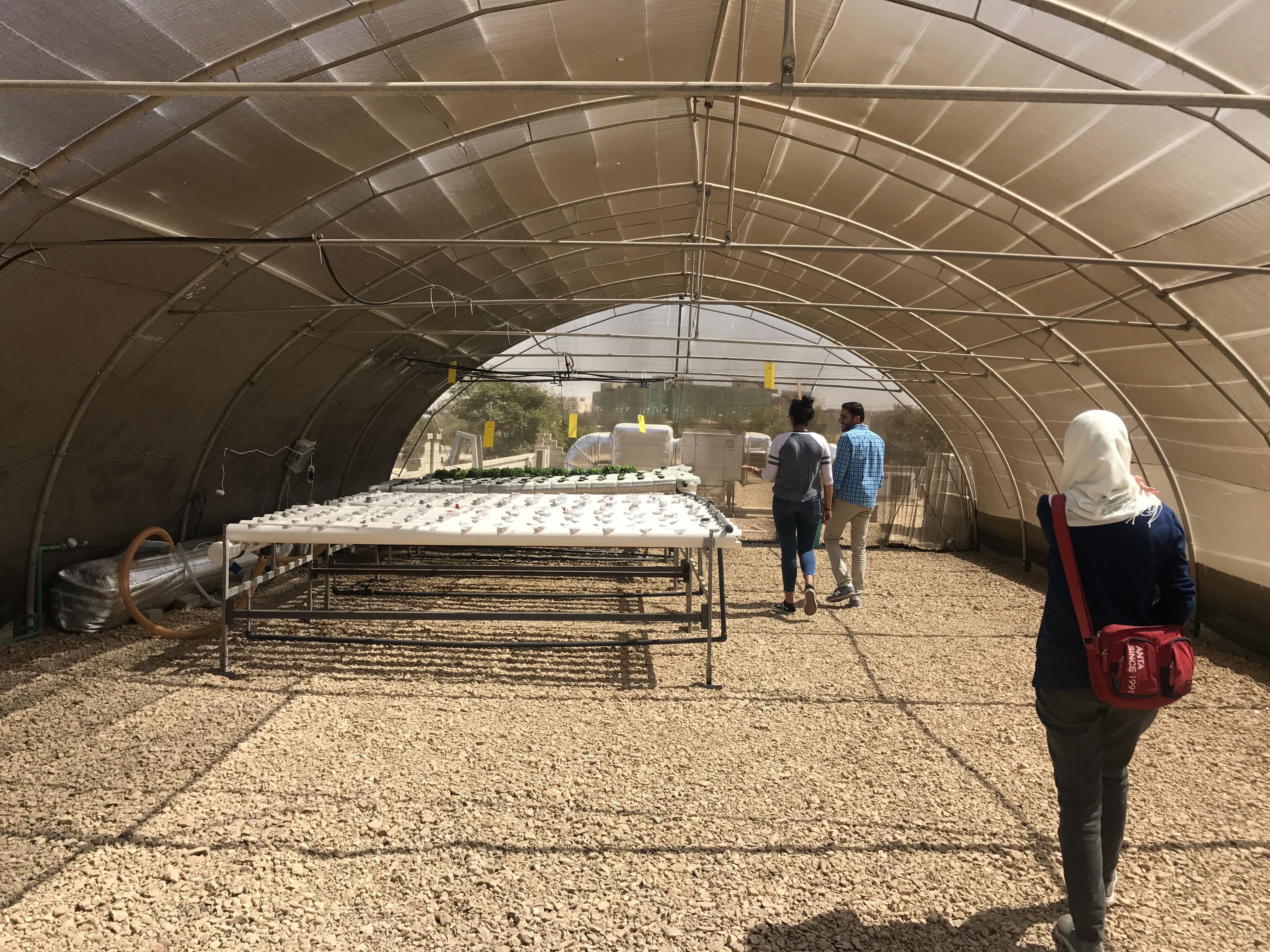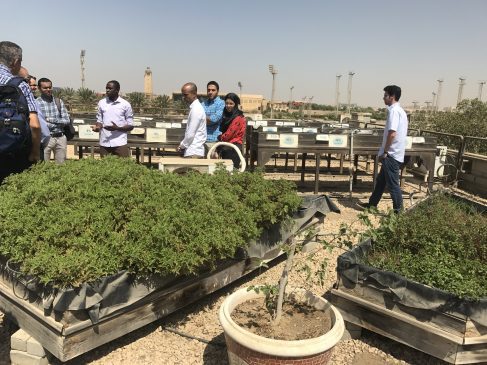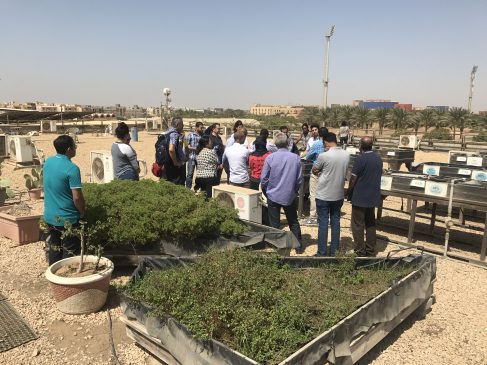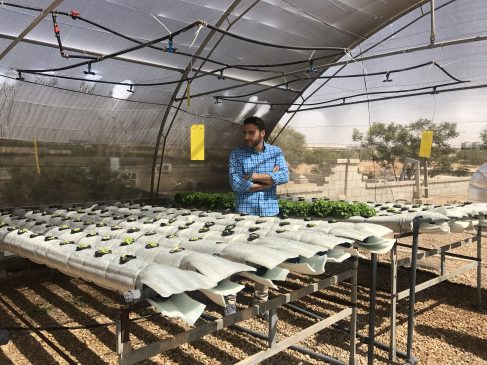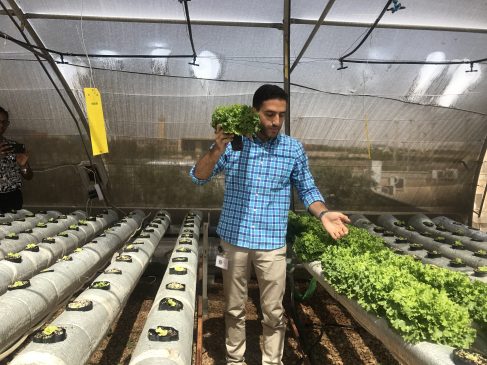By: Sara Mohamed
Follow @saraaashraf3
AUC’s Research Institute for a Sustainable Environment (RISE) hosted a one-day workshop on September 26 to explore hydroponics and aquaponics planting in Egypt as more sustainable avenues of water-based agriculture.
The workshop hosted four different pioneers in the field from Egypt and the United States.
They explained how these techniques are soilless methods of crop production and how each can be implemented using cheap resources.
The workshop launched with a tour of the Institute’s facilities. RISE Project Manager Abdallah Tawfik demonstrated how both planting methods are utilized on campus.
“Hydroponics and aquaponics are the future of growing food in the world,” he said.
Through hydroponics plants grow in a nutrient-rich solution in a soilless bed, Tawfik said.
Once water gets devoid of nutrients, additional solution is added and the process continues until plants fully grow.
He added that the aquaponics technique is a combination of hydroponics in a controlled environment — it is a balanced ecosystem that benefits crops as well as fish; waste matter from the fish tank is supplied as a natural nutrient to the hydroponic bed after being acted upon by bacteria.
“If we keep the right PH and set a well-controlled environment, all necessary nutrients for plant growth would be available from the fish water,” John Reid, CEO and founder of Waterfields Farms in USA, told The Caravan.
Tawfik added that such agricultural techniques are economic ways of planting since they are not costly and do not require high technology.
“In RISE, we grow 200 lettuce heads per cycle, which takes up to 65 days on hydroponic beds made of foam. It’s an affordable project with high productivity,” he said.
Founders and co-founders hydroponics farms in Egypt then led the workshop on the feasibility of hydroponics in informal settlements.
“Since the planting environment is controlled by man, summer crops can now be planted in winter and vice versa,” said Tarek Hosny, co-founder of Schaduf Farms.
“It only takes 15 minutes to setup the system on any rooftop and the beds are made up of wood and foam,” he added. “So it’s an affordable method of planting for the informal settlements.”
Moreover, Gozoor (Roots) for Investment and Agricultural Development offers theoretical and practical workshops for hydroponics farming, designed to encourage this more eco-friendly approach.
“It’s a two-day workshop for 20 hours and it costs around $15. It trains people how to hydroponically plant their crops,” said Mahmoud Atef, founder of Gozoor for Investment and Agricultural Development.
Egypt currently has 18 hydroponics farms that fund rooftop projects in informal settlements, Hosny said.
Gallery
